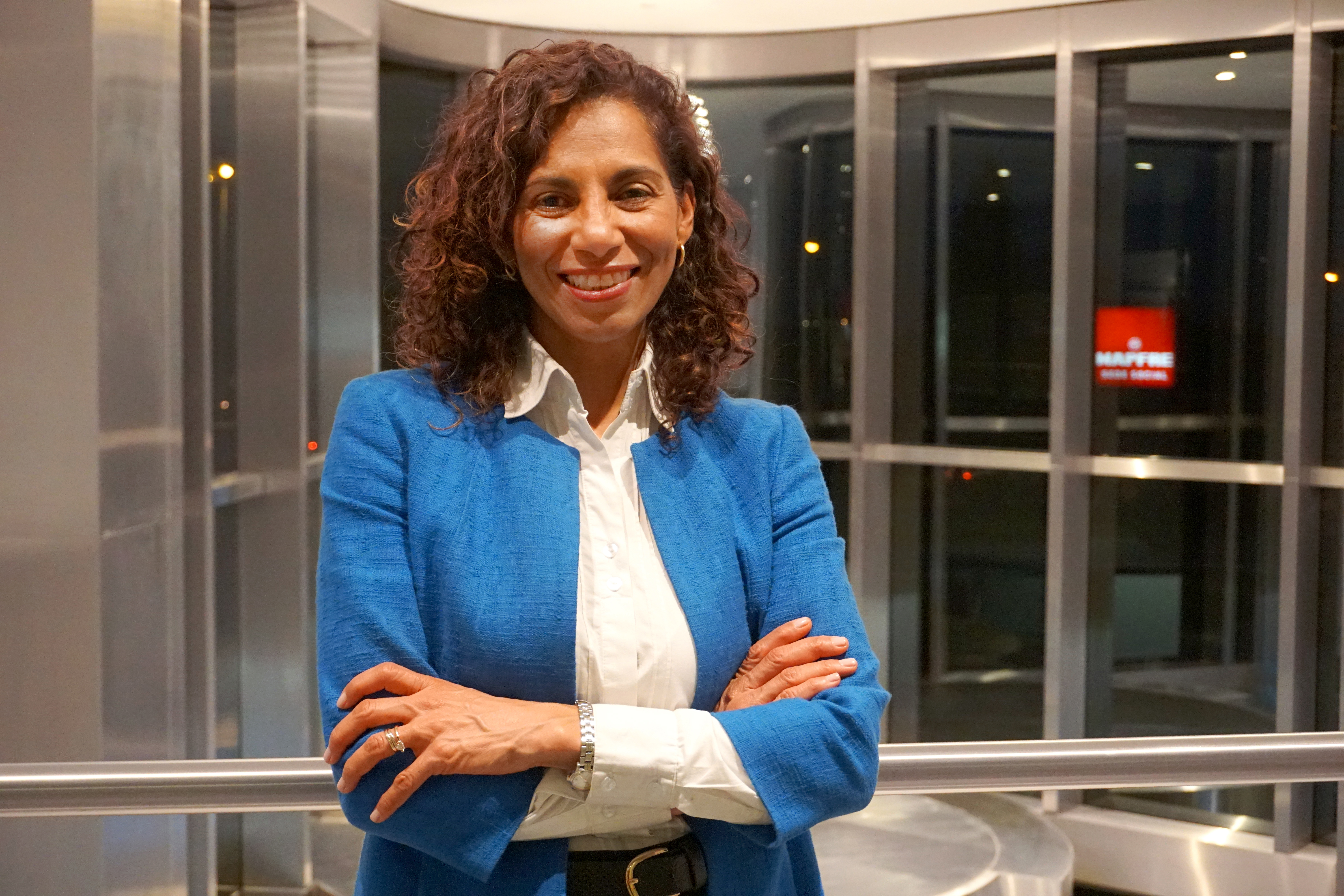
Mónica Zuleta Díaz: It is very important. Insurance has strong social value. Many of the social, personal and business activities of individuals and companies require insurance.
The work of insurance companies is essential to sustaining economic activity. Insurance helps consolidate the welfare state, and the insurance activity plays a very important role as an engine for economic development and social cohesion.
MAPFRE is a committed company that is concerned about its social footprint and fosters economic and social development in the countries in which it operates.
"Many of the social, personal and business activities of
individuals and companies require insurance."
We believe that business development also entails a demanding social, environmental and governance commitment to protect the legacy handed down to future generations.
Social responsibility has been part of the company for many years (it was first introduced in a MAPFRE Board meeting as early as 1965), and this responsibility has been embodied, since 2019, in a Sustainability Plan that sets the company's roadmap in aspects related to the environment, social and corporate governance.
In addition, we support the United Nations 2030 Agenda for Sustainable Development.
Mónica: Building a better, fairer, safer, more equal, more prosperous world is what sustainability is all about and is what MAPFRE aims to achieve with our Sustainability Plan #playingourpart - a concept targeting people and based on deeds and actions.
It revolves around what each one of us can do, those thousands of small gestures that contribute to the common goal of protecting the planet and building a better today and tomorrow for everyone.
For this framework we consider three main steps. It is essential to:
Mónica: The challenges were very broad, but I would highlight the following:
Firstly, there is the need for measurement of the impact of social actions. For this we are working on the development of internal methodologies that measure the impact of our social footprint.
Then there is the challenge of working to support the needs of citizens in the digital age as they become more aware of the impact of their actions and their contribution to sustainable development.
"We are integrating ESG risks in the value chain, working together
with providers of benefits and services."
Here we are developing products and services that respond to new insurance needs and how they contribute to the preservation of the environment and the economic and social development of the planet.
Likewise, we are working with Governments to support the development of SMEs. An example of this is the agreement that MAPFRE has recently signed with the Spanish Chamber of Commerce to provide SMEs with advice, training, technological support and information, with the aim of improving the competitiveness and sustainability of the business fabric of Spain.
We are also integrating ESG risks in the value chain, working together with providers of benefits and services to ensure ESG is central to their processes.
Mónica: The development of ESG principles is an opportunity for the insurance business.
Companies in the sector are adapting their business models to respond to the demands of sustainable development.
At MAPFRE, we are supporting our clients, suppliers and collaborators in the process of transition towards a more sustainable business model and we have also publicly committed to objectives, which show the company's commitment to sustainability. These objective include:
Mónica: It is impossible to grow a sustainable business without regard to the company's social footprint.
MAPFRE will never be relevant or successful in the long-term unless we care for people's well-being. It is a socially responsible business group and is committed to the environment, clients, and society.
"MAPFRE will never be relevant or successful in the long-term
unless we care for people's well-being."
We plan to keep reinforcing the integration of sustainability concepts in the organisation's culture, in business processes and in the generation of actions that contribute to the development of a more inclusive and equitable society.